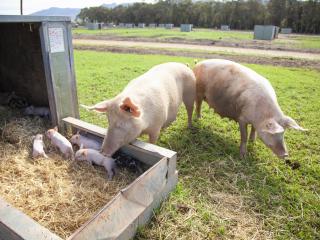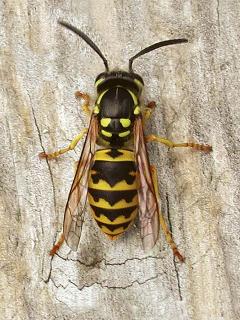A range of biosecurity responsibilities for small landholders will be the focus of Department of Primary Industries and Regional Development information and presentations at Gidgegannup Small Farm Field Day on Sunday 26 May.
Officers will be on-hand in the department marquee to help visitors with information on livestock biosecurity and traceability and horticultural pests, and a bee biosecurity officer will also be onsite.
Department senior research officer Darryl Hardie will present in the Sustainability Pavilion at 11am on horticultural pests, including Mediterranean fruit fly (Medfly), which affects pome, citrus and stone fruits, and citrus gall wasp, which form galls (growths) that weaken the stems of citrus plants, reducing fruit production.
“Residents and small landholders are asked to check for and control Medfly and citrus gall wasps on their properties to help prevent these pests impacting nearby commercial producers in the Perth Hills,” Dr Hardie said.
“We’re also appealing to locals and visitors to look out for and report suspect European wasps along the Darling Scarp as part of a late season department surveillance and eradication effort, prior to the start of winter nesting.
“Fertilised wasp queens arrive in Western Australia on freight and cargo each year due to the pest wasp being well established in the Eastern States, and our annual program has this year resulted in a record number of nests being found.
“The European wasp can have a significant impact where it’s established, attacking bees and beehives, damaging soft fruit and grape crops, and is an environmental and urban pest, so we’re keen to ensure WA remains free of it.”
European wasps and other pests can be reported to the department using the MyPestGuide Reporter app, by calling the Pest and Disease Information Service (PaDIS) on +61 (0)8 9368 3080, or emailing padis@dpird.wa.gov.au.
Department veterinarian Rod Thompson and livestock biosecurity officer Jack Nixon will be on-hand to provide information about livestock biosecurity responsibilities.
Mr Nixon said all livestock owners were required to ensure their livestock were traceable by registering as a livestock owner, correctly identifying livestock, and recording all livestock movements on and off properties.
“Livestock traceability is vital in the event of a disease outbreak, even for small landholders with a small number of livestock, and for maintaining domestic and international markets,” he said.
Dr Thompson invited pig owners to visit the department display near the cattle yards for information on the best foods to keep pigs healthy, pig biosecurity checklists and how to prevent devastating exotic animal diseases from entering Australia.
“Pig owners can also attend my presentation in the Sustainability Pavilion at 2pm on how to keep pigs healthy and keep high-risk diseases such as African swine fever, out of Australia,” he said.
More information on these topics is available on the department website agric.wa.gov.au by searching for ‘livestock ownership and movement’, ‘feeding pigs’ and ‘keep pigs healthy’.
At the Honey Festival area, bee biosecurity officer James Sheehan will have an interactive display on keeping bees in WA, with information on hive identification and registration, and bee biosecurity, including details on endemic and exotic pests.


Media contacts: Jodie Thomson/Dionne Tindale, media liaison +61 (0)8 9368 3937
